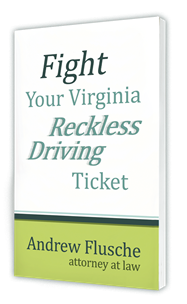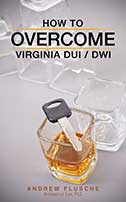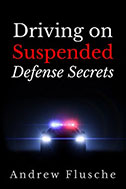Is Virginia a Stand Your Ground State?
You never thought you’d have to make that kind of decision. But when someone broke into your home late at night, you acted to protect yourself and your family.
Now, you’re left wondering: Did I have the legal right to defend myself? Could I face charges for protecting my own home? Is Virginia a “stand your ground” state? You’re not alone, and the fact that you’re asking shows you’re already taking the proper steps to protect yourself and your future.
The post below provides a comprehensive overview of Virginia’s self-defense laws, clarifying situations where retreat is not mandatory and explaining the state’s Castle Doctrine.
What Does “Stand Your Ground” Mean in Virginia?
While there isn’t an explicit VA stand your ground law, the state’s legal framework allows individuals to defend themselves without a duty to retreat when faced with immediate danger, provided they are not the initial aggressor and are lawfully present at the location. Courts have consistently upheld this principle, which is integral to Virginia’s self-defense laws.
In essence, Virginia follows a “no duty to retreat” rule, meaning you are not legally required to flee before defending yourself, as long as you’re not the aggressor and are in a place where you have a legal right to be.
Understanding the Castle Doctrine in Virginia
The castle doctrine is a legal principle that allows individuals to use reasonable force, including deadly force, to protect themselves against an intruder in their home. In Virginia, this doctrine is recognized through case law rather than specific statutes.
Key aspects of the Castle Doctrine in Virginia:
- No duty to retreat at home. You are not required to retreat when defending yourself in your home.
- Reasonable belief of threat. You may legally use deadly force if you reasonably believe the intruder intends to cause death or serious bodily harm.
- Proportional force. The force used must match the level of threat posed.
It’s important to note that the Castle Doctrine applies specifically to your dwelling. Using deadly force in other locations, such as your workplace or public spaces, is subject to different legal standards.
Can You Shoot a Home Intruder in Virginia?
Under the Castle Doctrine, if an intruder unlawfully enters your home and you reasonably believe they pose an imminent threat of death or serious bodily harm, you may use deadly force to protect yourself or others in the house.
However, the use of force must be:
- Reasonable—based on what a typical person would consider necessary under the circumstances, and
- Proportional—matching the level of threat posed by the intruder.
Lethal force is not legally justified if the threat has ended, such as when an intruder retreats or no longer presents an immediate danger.
Suppose someone breaks into your home at 2 a.m., refuses to leave, and moves aggressively toward your child’s bedroom. In that case, the law may justify using deadly force if you reasonably believe serious harm is imminent.
Using Force Against Trespassers in Virginia
You may use reasonable, non-deadly force in Virginia to remove a trespasser from your property. Deadly force is only justified if the trespasser poses an immediate threat of death or serious bodily harm. Considerations when dealing with trespassers:
- Verbal warnings. If safe, ask the trespasser to leave before using force.
- Avoid escalation. Use the minimum force necessary to protect yourself and your property.
- Call law enforcement. Involving authorities can help de-escalate the situation and provide legal documentation.
The law distinguishes between trespassers and intruders who pose a direct threat.
Common Misconceptions About Self-Defense Laws in Virginia
There are several common misconceptions about self-defense laws in Virginia:
- “Stand Your Ground” equals unlimited force. Even without a duty to retreat, the use of force must still be reasonable and proportional.
- Castle Doctrine applies everywhere. The castle doctrine pertains explicitly to your dwelling. Different rules apply in public spaces.
- Any intruder justifies deadly force. Deadly force is only justified if you reasonably believe the intruder poses an immediate danger of death or serious bodily harm.
Understanding these myths can help you make informed decisions in high-stress situations.
Flusche & Fitzgerald – Advocates for Your Rights
At Flusche & Fitzgerald, we’re not just about legal defense. We’re about people. With over a decade of experience defending clients against criminal and traffic charges across Virginia, we offer a unique blend of professional expertise and genuine compassion. We know how complex our state’s self-defense laws can be, and we’re committed to safeguarding your rights, reputation, and future.
When you need to defend yourself or your home, the right defense attorney can make all the difference. We’re here to be that difference for you. Contact us today at 540-318-5824 to discuss your case and learn how we can help you.
FAQs
Can You Stand Your Ground in Virginia?
Yes, Virginia recognizes the right to stand your ground under certain circumstances. If you are not the aggressor and are lawfully present, you have no duty to retreat before using reasonable force to defend yourself against an imminent threat.
Can You Use Force to Remove a Trespasser in Virginia?
You may use reasonable, non-deadly force to remove a trespasser from your property. Deadly force is only justified if the trespasser poses an imminent threat of death or serious bodily harm.
Resources:




